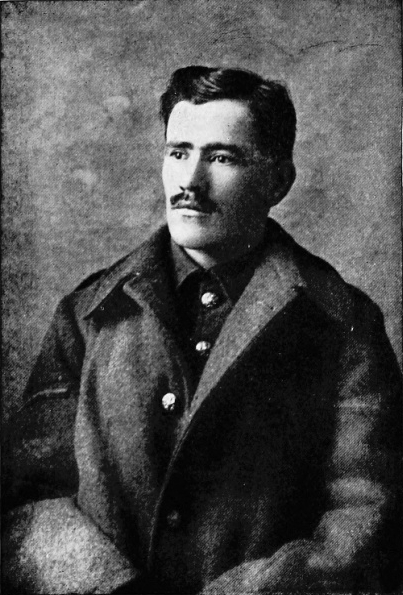
THE COMPLETE POEMS
OF
FRANCIS LEDWIDGE
WITH INTRODUCTION
BY LORD DUNSANY
HERBERT JENKINS LIMITED
YORK STREET ST. JAMES'S
LONDON S.W.1
MCMXIX

Francis Ledwidge
TO
MY MOTHER
THE FIRST SINGER I KNEW
INTRODUCTION TO SONGS OF THE FIELDS
Dunsany Castle,
June, 1914.
If one who looked from a tower for a new star, watching for years thesame part of the sky, suddenly saw it (quite by chance while thinkingof other things), and knew it for the star for which he had hoped, howmany millions of men would never care?
And the star might blaze over deserts and forests and seas, cheeringlost wanderers in desolate lands, or guiding dangerous quests; millionswould never know it. And a poet is no more than a star. If one hasarisen where I have so long looked for one, amongst the Irish peasants,it can be little more than a secret that I shall share with those whoread this book because they care for poetry.
I have looked for a poet amongst the Irish peasants because it seemedto me that almost only amongst them there was in daily use a[Pg 8] dictionworthy of poetry, as well a an imagination capable of dealing with thegreat and simple things that are a poet's wares. Their thoughts are inthe spring-time, and all their metaphors fresh: in London no one makesmetaphors any more, but daily speech is strewn thickly with dead onesthat their users should write upon paper and give to their gardeners toburn.
In this same London, two years ago, where I was wasting June, Ireceived a letter one day from Mr. Ledwidge and a very old copy-book.The letter asked whether there was any good in the verses that filledthe copy-book, the produce apparently of four or five years. It beganwith a play in verse that no manager would dream of, there weremistakes in grammar, in spelling of course, and worse—there were suchphrases as "'thwart the rolling foam," "waiting for my true love onthe lea," etc., which are vulgarly considered to be the appurtenancesof poetry; but out of these and many similar errors there arosecontinually, like a mountain sheer out of marshes, that easy fluency ofshapely lines which is now so noticeable in all that he writes; thatand sudden glimpses of the fields that he seems at times to bring sonear to one that one exclaims,[Pg 9] "Why, that is how Meath looks," or "Itis just like that along the Boyne in April," quite taken by surprise byfamiliar things: for none of us knows, till the poets point them out,how many beautiful things are close about us.
Of pure poetry there are two kinds, that which mirrors the beauty ofthe world in which our bodies are, and that which builds the moremysterious kingdoms where geography ends and fairyland begins, withgods and heroes at war, and the sirens singing still, and Alph goingdown to the darkness from Xanadu. Mr. Ledwidge gives us the firstkind. When they have read through the profounder poets, and seen theproblem plays, and studied all the perplexities that puzzle man in thecities, the small circ